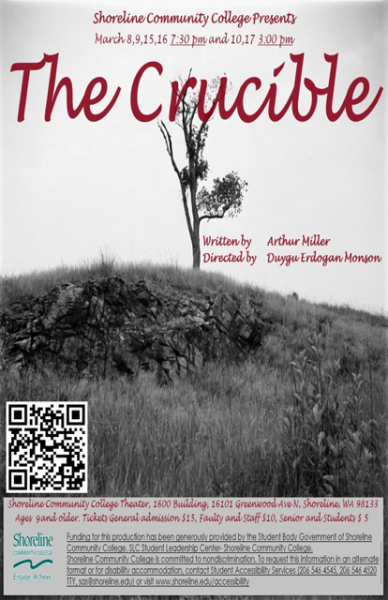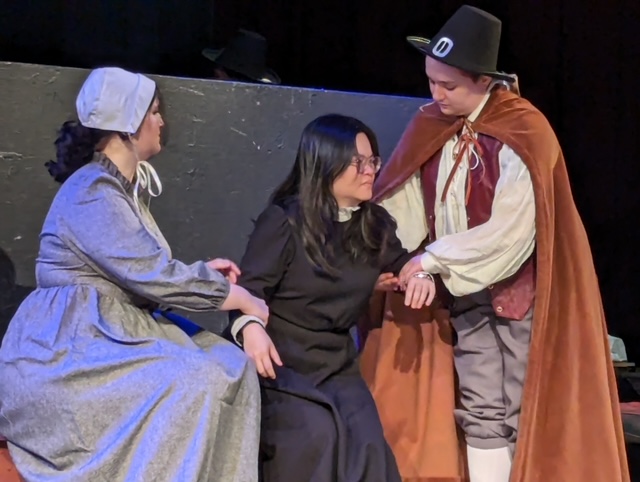According to director Duygu Erdogan Monson, Arthur Miller’s 1953 play, The Crucible puts a stake into the Salem Witch Trials that occurred in America around 1692. “Even though this happens about 400 years ago in America, it’s really still related and relevant to our today world, we are still talking about human body [ownership],” says Monson.
The play encapsulates the stories of female roles and gets the audience to question who is truly the bad guy within this story. Monson says the female characters would turn against one another because, “These girls are still exploited by the patriarchal societies, the strong man, powerful man. Then they were forced to give names because… there was no other way for them to survive.”

The show will be held on March 8, 9, 15 and 16, at 7:30 p.m. with matinees on March 10 and 17 at 3:00 p.m. Students can buy tickets at the door of the 1600 Theater building or through the QR code on the posters through Brown Paper Tickets. Tickets are $5 for students and seniors, $10 for faculty and staff and $15 for general admissions.
In addition, Monson would like to thank SCC President Dr. Jack Kahn for the support given to the theater department. This winter’s theatrical performance was also aided with promotions and marketing strategies from Cat Chippa.
“We are able to do this productions with the support of student government… the budget comes from students fees and student support… that’s why we can make the tickets prices really low for the students,” Monson said. “Humanities Dean Nancy Dick is a big support because this is a class… we have to do in the class environment, we need a lot of support from the Dean.”
Monson applauds the students for bringing this historical piece to life. She notes that in the current world we need to, “stay together against all the bad things, all the wrongdoings and injustice in the world, we can fix it. But if we cannot all be together, we still can do a lot as an individual person. Just, we have to be brave and speak up.”
Monson directs her students to innovate their own characters as singular people, who try to do the right thing in the world that oppresses them to survive. The conflicts faced within this piece are a beautiful representation of humanity.
—
[Updated 09/04/2024 to correct the spelling of SCC President Dr. Jack Kahn.]




